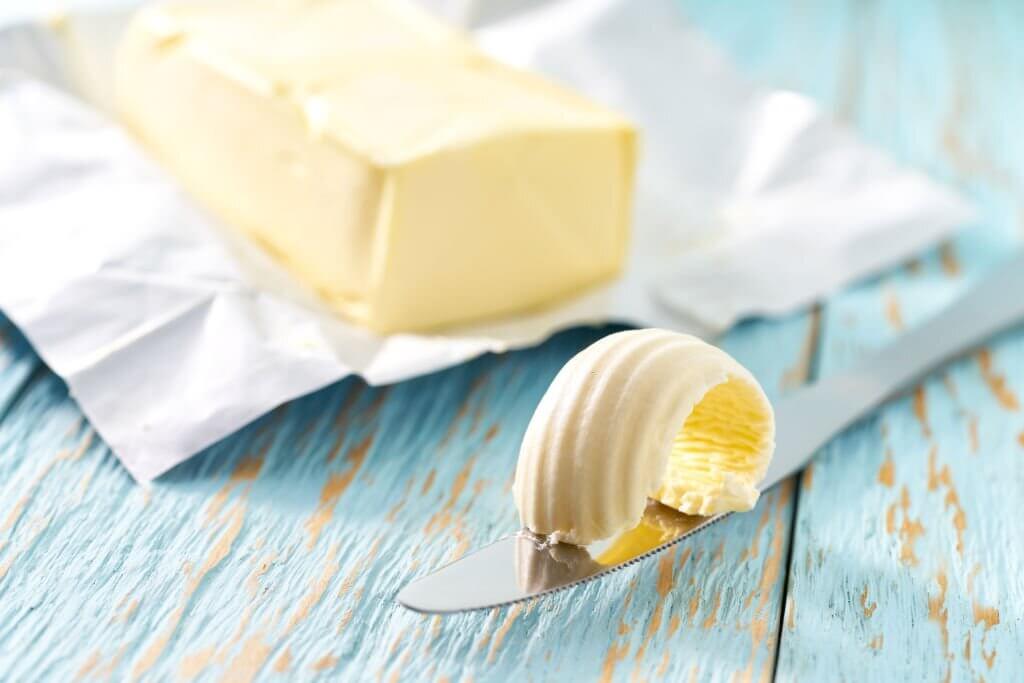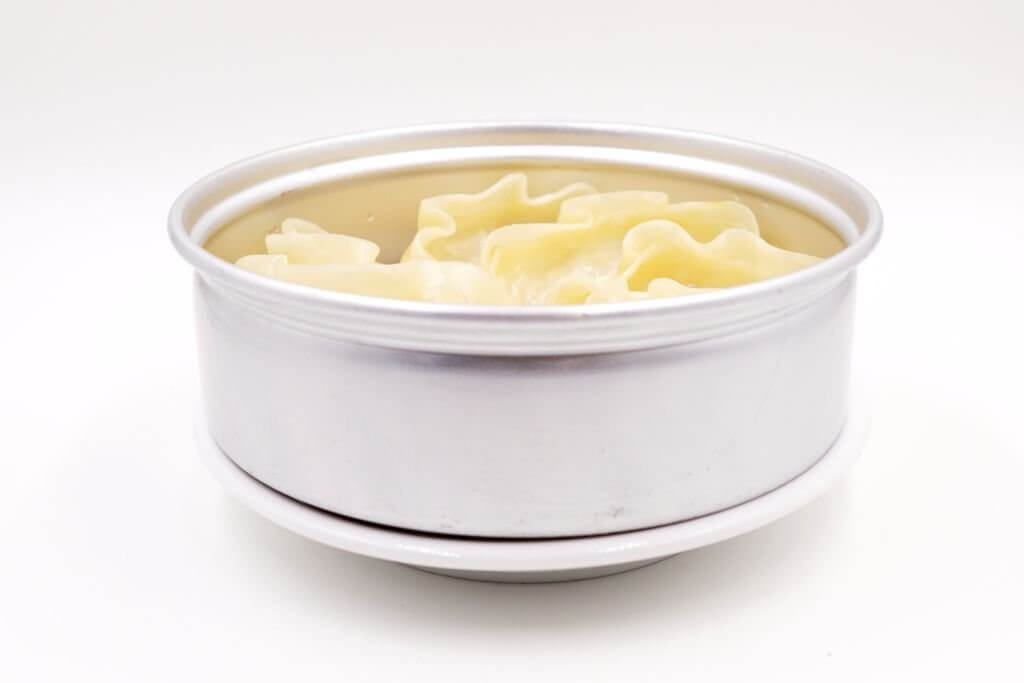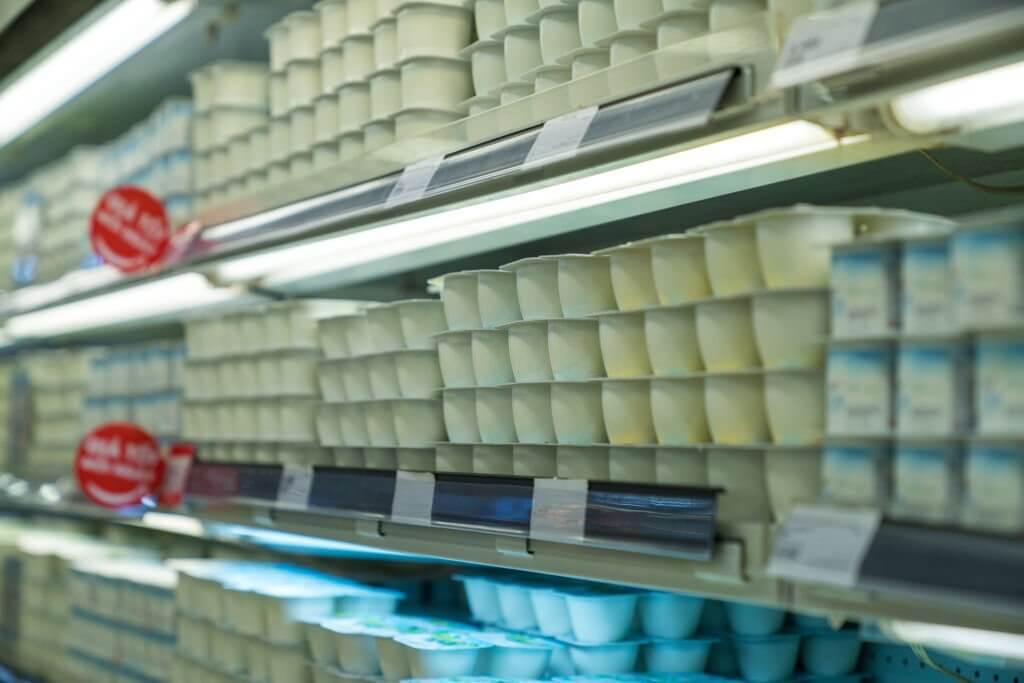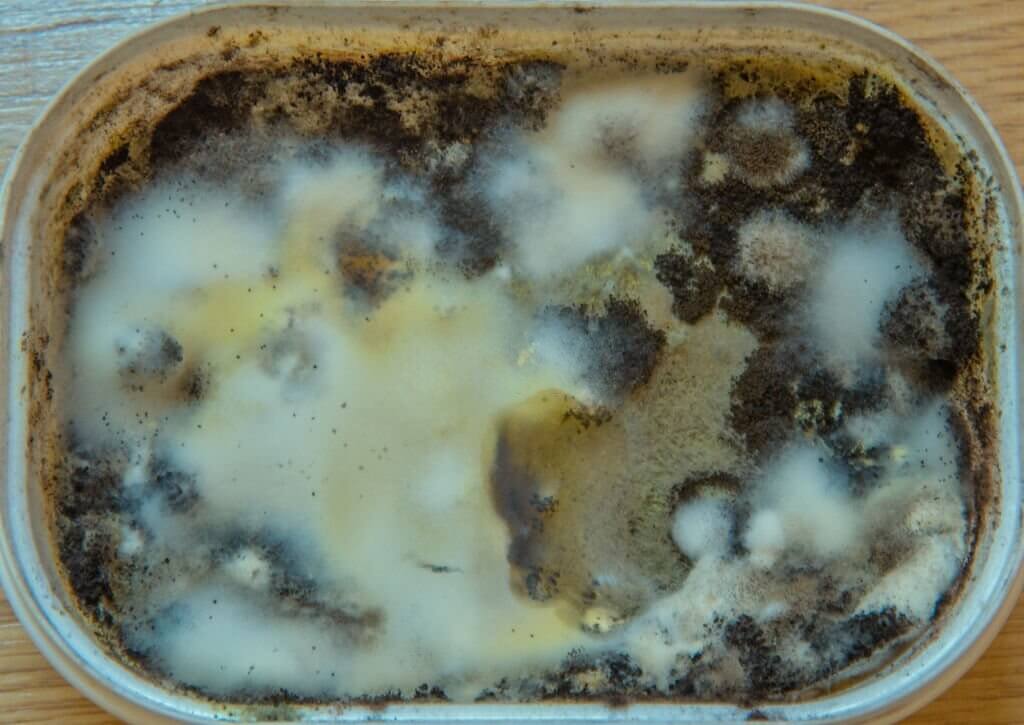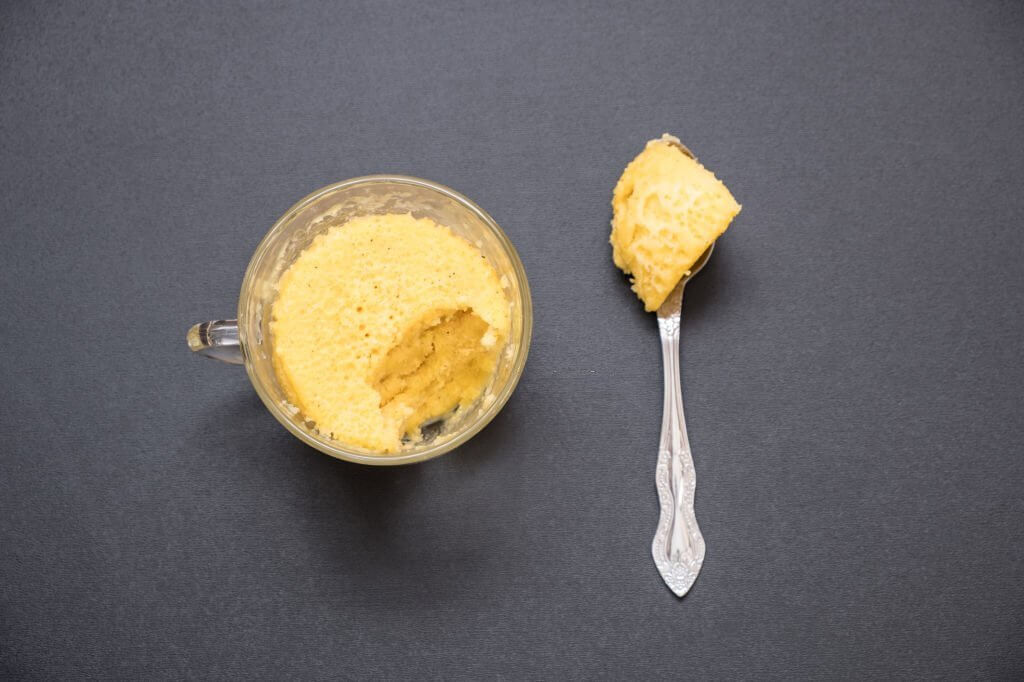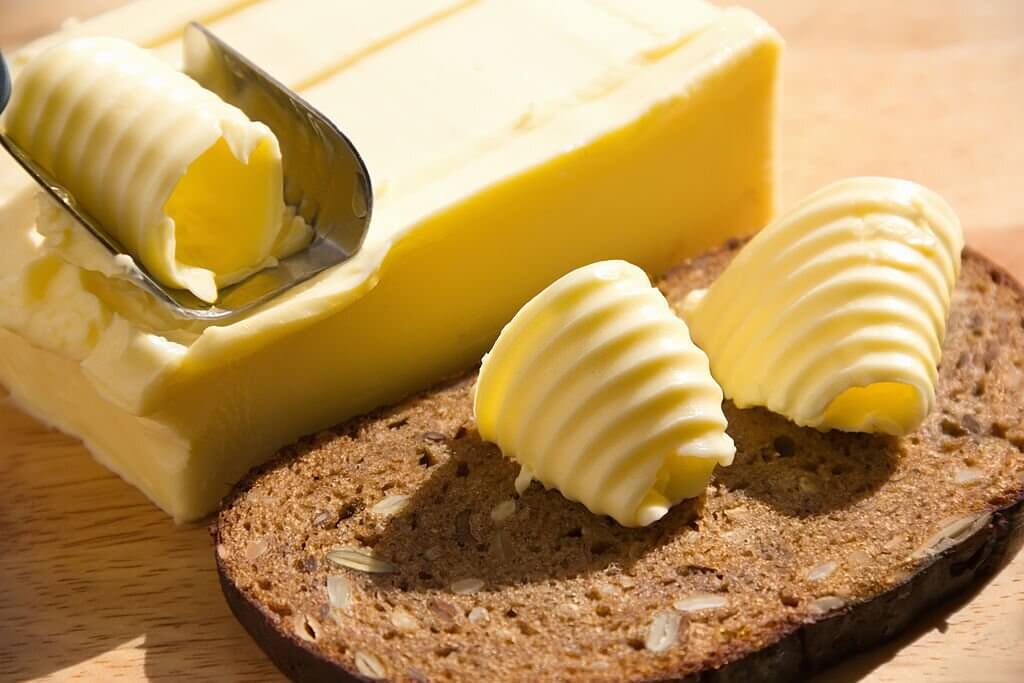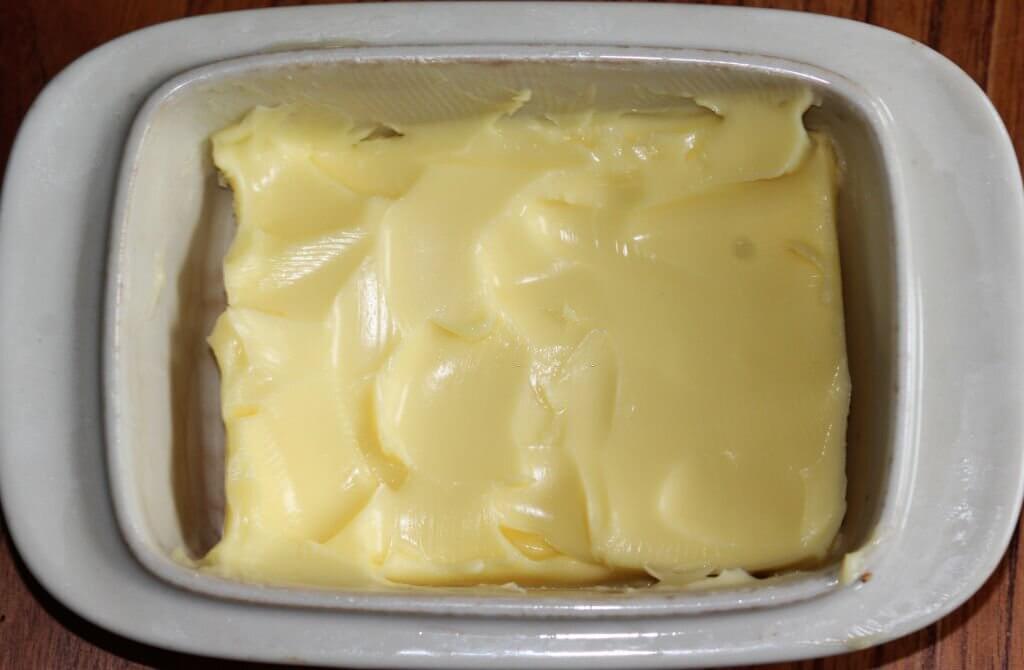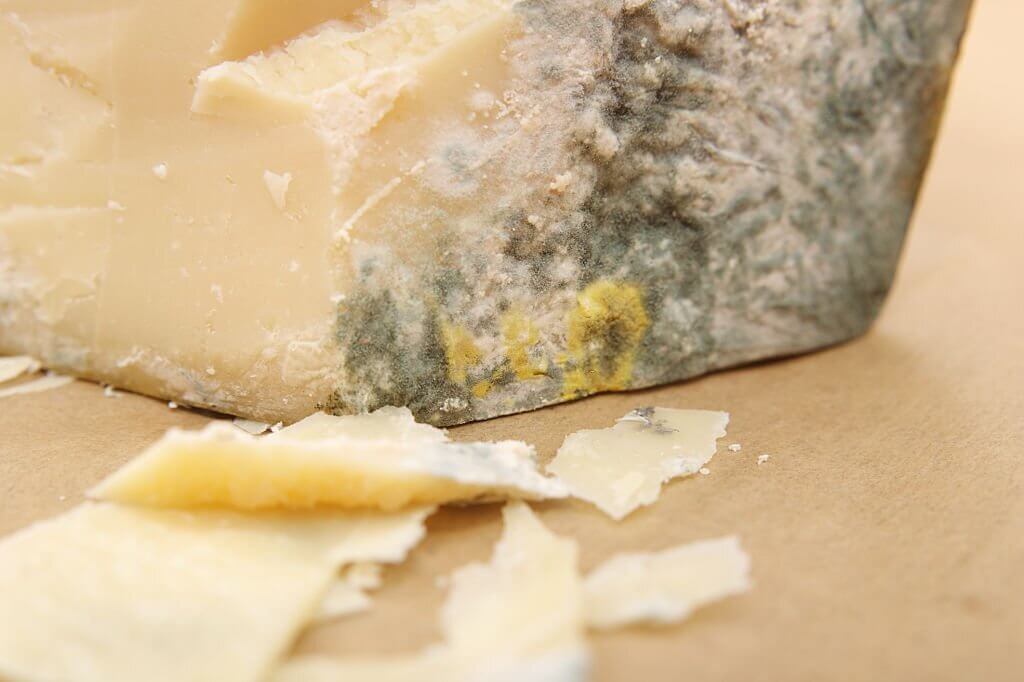Butter is an irresistible dairy product, but it can get moldy quickly. If you notice mold growing on your butter, don’t hesitate to discard it promptly.
Mold can grow on butter when it is exposed to moisture or heat. To avoid this from occurring, be sure to store your butter properly.
What Is Butter?
Butter is a dairy product created by the churning of milk or cream. Most often made with cow’s milk, but goats, sheep and yaks can also produce butter.
Butter is a solid form of fat that surrounds tiny droplets of water and milk proteins. It’s an ideal source of healthy fat and often used in various cooking applications.
Butter is often employed in baking to add richness and tenderize baked goods like cookies. It also has numerous uses, from spreading on toast to substituting oil in recipes.
If you want to reduce the saturated fat in your diet, using vegetable oil instead of butter in baking can be beneficial. That way, you get approximately half the calories and saturated fat that butter has.
Another option is to substitute butter with non-traditional ingredients like coconut oil or canola oil in certain recipes. But first you must consider how crucial butter is in the recipe in question to decide if these substitutions will suffice.
The Expected Shelf Life Of Butter
Butter is a dairy product that can last for years, but it also goes bad if not stored correctly. The shelf life of butter varies depending on several factors such as its type and how it’s packaged.
Butter is highly susceptible to spoilage due to air, heat and light exposure. To preserve its freshness and extend shelf-life, store butter in a cool place away from direct sunlight.
By doing this, you’ll be able to extend its shelf life and make it last longer. Furthermore, wrapping in foil helps prevent rancidity as well.
Butter can be stored in the fridge for up to one month after opening if left undisturbed, and two weeks if opened. Frozen, however, you can expect it to keep for six months up to a year depending on the type of butter used.
Butter is an incredibly versatile product – delicious on its own, as well as in cooking, baking and spreads. Whether salted or unsalted, butter adds flavor to dishes while being inhospitable to bacteria.
What Causes Mold On Butter?
Butter is a dairy product containing both fats and water, making it susceptible to mold growth – though usually only after it has gone rancid.
Butter can become moldy due to oxidization, an uncontrollable natural process which leads to foods becoming rancid and spoil. Unfortunately, storage methods cannot stop this from happening.
However, you can minimize your butter’s chance of spoilage by choosing proper storage methods. Storing it in an opaque and airtight container will slow down oxidation and make it more difficult for mold to grow.
Another factor that can influence how quickly butter spoils is its salt content. Salted butter tends to have more resistance to fungus growth than unsalted, as the salt helps prevent them from even beginning.
How Long Does It Take Butter To Develop Mold?
Butter is a dairy product and thus susceptible to mold growth. Fortunately, it’s less vulnerable than other milk-based items due to its high fat content which inhibits mold development when stored at room temperatures.
However, butter should never be stored in warm or damp environments due to its high fat content that makes it vulnerable to oxidation and the development of mold and mildew.
That is why it’s essential to store it in an airtight container and protect it from light or oxygen exposure. Otherwise, the oil can oxidize rapidly and turn rancid.
That is why it is essential to wash your butter before storing it. Additionally, placing several paper towels down wherever you plan on storing your food helps absorb any moisture and prevent mold spores from making a home on your food.
How Do You Know If Butter Has Spoilt?
Butter is one of the most versatile ingredients in your kitchen, but it can go bad if not stored correctly. This occurs due to oxidation that takes place when exposed to heat and light.
Oxidation is what causes butter to turn rancid, leading to an unpleasant taste and smell. Therefore, it’s essential to know how to detect when butter has gone off before consumption.
When determining if butter has expired, the first step to take is checking its expiration date. This date usually appears on the packaging and indicates when you can safely consume the product.
However, it’s essential to note that this date isn’t a hard-and-fast rule. Depending on how you store your butter, it may last longer than the printed expiration date.
Refrigerating butter can extend its shelf life for up to one month, but it’s essential to remember that exposure to air and elements increases oxidation which could hasten expiration. Therefore, store butter in an airtight container or wrap it securely.
How To Prevent Butter From Going Moldy
Butter is an essential component in many dishes. Unfortunately, if not stored correctly, butter can get moldy and spoil quickly.
Moldy butter can be a health hazard and lead to food poisoning, so it’s best to store your butter in an airtight container or wrap it in a plastic freezer bag when not in use. These methods help prevent the bacterial growth that leads to mold on butter.
Mold growth on butter is determined by several factors, such as humidity, salt content, contamination and heat exposure. For instance, storing unsalted butter at room temperature has a higher likelihood of mold formation than salted butter when stored at the same temperature for an extended period.
It’s essential to keep your butter container out of the oven and in a cool environment whenever possible, as heat can promote mold growth on soft foods like butter. If your kitchen temperature exceeds 70degF, consider storing butter in the refrigerator instead.
Is It Safe To Eat Moldy Butter?
Mold can also release toxic substances known as mycotoxins, which may cause allergic reactions and respiratory issues. Therefore, it’s best to steer clear of moldy butter when possible.
Additionally, it’s essential to store butter in the refrigerator when not planning on using it soon. At room temperature, butter can soften and allow mold to seep deeper into the product.
Conclusion
When it comes to butter, the age-old question of can butter get moldy is no longer a mystery. There are plenty of tricks and tips you can use to ensure your favorite dairy product lasts as long as possible.
Start by keeping your butter in the refrigerator – this will keep it fresher longer and prevent mold from forming. Furthermore, keep it away from direct sunlight and warm areas of your kitchen for best results.

